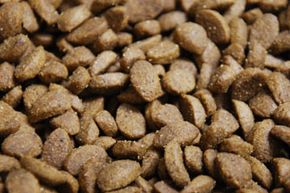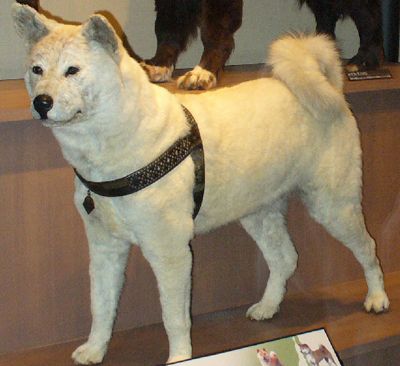Talk to enough veterinarians about the nutritional needs of so-called senior dogs and you'll get very used to hearing this answer: It depends. It's certainly not the result of vets being evasive or unhelpful; it's just that the reality is that there are so many breeds and sizes of dogs -- many with their own particular diet-related health concerns -- that blanket statements are tough to make. Even what age equates to senior status varies according to the breed and size of a dog. "Dogs are considered geriatric at various ages depending on the breed. Smaller breeds will begin to be considered as senior at about 10 or 12 years old while the largest breeds are considered as senior at 5 or 6 years of age," says Deena Krestel-Rickert, who runs Missouri-based Pettec, a pet food consultancy. "On average, though, most veterinarians consider a dog senior at 7 or 8 years."
Whether you have a 10-year-old Chihuahua or 5-year-old Great Dane -- and regardless that vets don't want to make sweeping pronouncements about diet -- the fact is that senior dogs do have changed nutritional needs [source: Krestel-Rickert]. Like aging humans, older dogs tend to exercise less and thereby need fewer calories. "Generally, older dogs need a complete and balanced diet that is lower in calories but still has protein and fat and more fiber," says Krestel-Rickert. "Some can be fed a normal diet, but in smaller quantities."
Advertisement
Beyond that general observation, there are more specific conditions common in older dogs that require dietary tweaks. For example, Dr. Jules Benson, a vice president of veterinary services at the pet insurance company Petplan, notes that elevated levels of antioxidants can provide some benefit in fighting senile dementia in dogs, while upping fatty acids and glucosamine can help relieve arthritis and joint pain.
Furthermore, says Benson, dogs with liver, kidney or heart disease can be aided by limiting intake of phosphorous, protein and sodium. Krestel-Rickert agrees that senior dogs with decreased kidney function can benefit from a reduced-protein diet, since it takes some strain off of the kidneys. At the same time, she says that some senior dogs are prone to constipation, so a diet higher in fiber can be wise.
The question of what ingredients to avoid is more involved and, once again, depends on the specific health condition of a senior dog. But there is one admonition that applies to all dogs, young and old. "The only ingredients to reliably avoid are those that are toxic to dogs," Benson says. "For example, grapes, raisins, chocolate and melamine, obviously."
Others involved with senior pet nutrition cast a wider net. Susan Thixton, author of "Buyer Beware: The crimes, lies and truth about pet food," says that pet owners should be aware of by-products. "By-products are parts of a slaughtered animal that are not commonly consumed by humans," she says. "However, by-products can include feathers, fur, intestines, and unhealthy or diseased internal organs." This doesn't mean the pet food company is doing anything illegal, but these may not be items you want your dog to eat.
Advertisement



